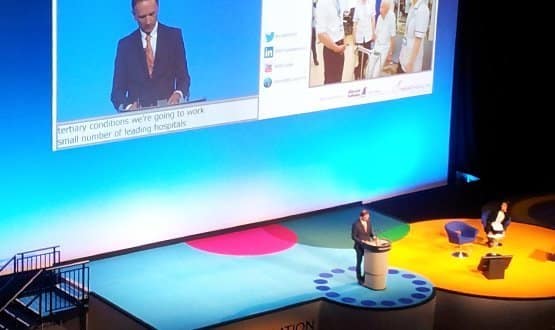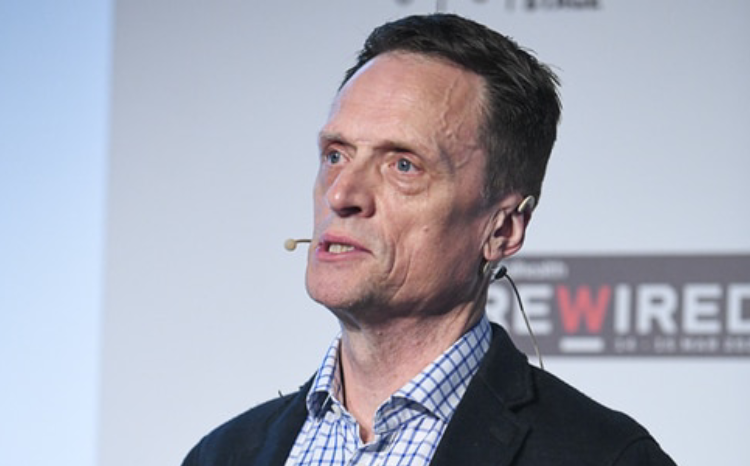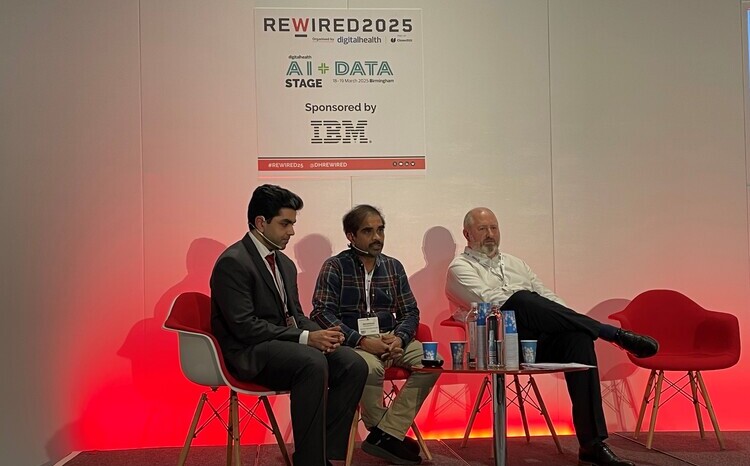Mind the gap
- 10 June 2014

There was certainly a change of tone at this year’s NHS Confederation conference. For the past few years, the event has been focused on the repercussions of Andrew Lansley’s reorganisation of the NHS, and by the growing financial pressure on it.
In advance of this year’s conference in Liverpool, the King’s Fund think-tank warned that, even though the NHS has been keeping up with the ‘Nicholson Challenge’ to find £20 billion of efficiency savings by 2015, it has done so by holding down the acute tariff, management costs and wages.
As these sources of funding give-out, it predicted that a financial crisis will become “inevitable”. It also urged the government to find more money to bail out trusts and pump-prime the service changes that policy makers and managers argue are essential to create a “sustainable” service.
The NHS Confederation, under its new chief executive, Rob Webster, probably agrees with much of this, since it has launched its own ‘2015 Challenge’ to address “the most challenging period in its 65-year existence.”
However, its timescale is less immediate. Recognising that the kind of change that will be needed to bridge what is set to become a £30 billion gap between funding and demand by 2020 will take “political courage” and superb planning, it has refocused on the 2015 general election.
Specifically, the challenge urges politicians to “create the space for change” after the election and for the NHS to be “ready” to take advantage of it.
No cheque coming
Against this background, the many politicians who trooped up to Liverpool’s Echo Arena were keen to put forward their ideas for change; most of which were so strikingly similar as to amount to a near-political consensus.
So, in debate, former health secretary Alan Milburn warned that parties would be keen to “out-austerity” each other in the run-up to polling day; only for Labour’s current shadow health secretary, Andy Burnham, to give a keynote speech in which he said that more money “cannot be the first response” to the NHS’ problems.
“Before asking my constituents for more money, I would have to look them in the eye and assure them we were squeezing every last penny out of the NHS today,” Burnham said, adding that he could not do this because of Lansley’s “wasteful” reforms and the squeeze on social care that is “putting pressure on A&E”.
Instead, he argued, the solution lay in moving away from the NHS’ hospital focused model, towards more integrated health and social care.
Burnham didn’t go quite as far as care secretary Norman Lamb. In his keynote, he said that “eventually all budgets” for health and social care should be pooled – and that he would like to see a commitment to doing this included in his party’s manifesto.
But both were on much the same page as health secretary Jeremy Hunt, who said that a “sustainable” NHS that was also “true to its values” was achievable, as long as it continued to respond to the Francis report on Mid Staffs – and drove through changes to out-of-hospital care.
Integration focuses attention on info sharing
There are some fairly significant implications for technology buried in all of this; although, again, it was possible to detect a change in focus from previous years.
Instead of worrying about the direction of the National Programme for IT in the NHS, or how to get systems into acute hospitals now it has substantially failed, politicians and policy makers seem more interested in how to get information shared around the health and social care system.
At the end of his speech, in response to a question about “barriers” to information sharing, Lamb said data is vital to support commissioning and change initiatives and to join up patient care. As a result, he added, he is “close” to issuing guidance that says “there is a duty to share information.”
Later in the day, Hunt gave what amounts to a big endorsement for shared care records in his speech, in a reference to the Better Care Fund. This is the government’s flagship integration initiative, but it is stalled at the moment, because of concerns that it will not deliver what is promised for it.
Some £3.8 billion has been put into the fund, most of it siphoned off from the NHS’ acute budget. The King’s Fund has calculated that it will need to save the equivalent of 15% of emergency admissions to break-even; and how to pay for those admissions if it doesn’t do this is a question that is taxing NHS finance directors.
Hunt said any projects paid for by the fund would have to be jointly commissioned by the NHS and local councils, who would have to share the risk, support seven day working, and include “shared records.”
Skype'll sort it
Meanwhile, politicians and policy makers continue to be fans of remote and consumer technology. Telehealth and telemonitoring were duly ticked-off in presentations as ideas for doing things differently.
Hunt himself cited a project in Airedale that gives patients access to a nurse through the ‘red button’ on their TV when asked a question about backing “innovation” in the NHS.
Online and mobile access to primary care services were also suggested at various points. Hunt trotted out the by-now familiar idea of Skype consultations in his innovation response, saying his current “pet idea” is to encourage GPs to hold Skype consultations with consultants to improve referrals.
Personalisation and big data
The really big tech ideas, though, came up in Simon Stevens’ first speech to Confed. NHS England’s new chief executive breezed over the Nicholson Challenge, saying “we have been analysing challenges and now we need to get on with delivering solutions.”
He also rode over the approach of his predecessor, Sir David Nicholson, who put in place quality, innovation, productivity and prevention initiatives to find the money, and called for a “big conversation” with the public on what a sustainable NHS might look like.
Stevens said there would be no “five year plan”, arguing that more “sophisticated” commissioning and more local changes to hospital and community services are the way forward. But, he suggested, the really good news is that “we are on the cusp of a revolution in modern medicine” that would open up new horizons.
In a rapidly delivered speech that threw out references and international examples by the dozen, Stevens told his audience that this revolution would be driven by two factors; personalisation and big data. On the personalisation front, he said “genomics will change our understanding of disease” and enable treatments to be tailored to the individual.
He said he wanted the NHS to be at the “forefront” of this process, which will require huge amounts of processing power and supporting IT infrastructure.
In one of the more boggling presentations to the conference, Patrick Soon-Shiong, the billionaire founder of Nant Health, told a rapt audience about the massive investment it has made in computing power to support both genomic and proteinomic analysis in the US, and to link up cancer centres.
The company, which has just announced the first UK customers for parts of its clinical operating system (which, it argues, is a far better investment than the ‘electronic paper record’ approach of traditional vendors), has worked with AT&T, HP, Intel and Verizon on the “supercomputer” that it claims can analyse the genomic data of 5,000 cancer patients a day in 47 seconds each.
Stevens signalled a rather smaller step for the UK by announcing the start of the bidding process for hospitals that want to take part in the 100,000 Genome project to map the genomes of 100,000 individuals with rare diseases and link them to electronic records.
The future’s bright… the problems are pressing
On the big data front, Stevens said he was sure “we all get” the potential impact of data on making healthcare more predictive and efficient.
He told his audience that the care.data programme to link hospital and other data sets and to make information available to researchers and others will have a big role to play – once the row over patient consent and who will have access is sorted out.
Which was the problem with the more forward looking, big ideas mood of Confed 2014. Stevens wanted to be optimistic. Yes, he concluded “times are difficult” but the NHS has “different options” to the options it had in the early 2000s, when a similar financial crisis led to a lot more money and a big plan to expand capacity. Managers should look at those options and “get on with it.”
Yet, the general election is some way off, the integrated care agenda is struggling with the business case, the care.data revolution is stalled at the privacy barricades, and the genomics revolution is just a big and exciting promise. And in the meantime, the NHS has some immediate problems to tackle.
A lot of the managers at NHS Confederation would probably prefer the cash; and something that looks a lot more like a plan.





